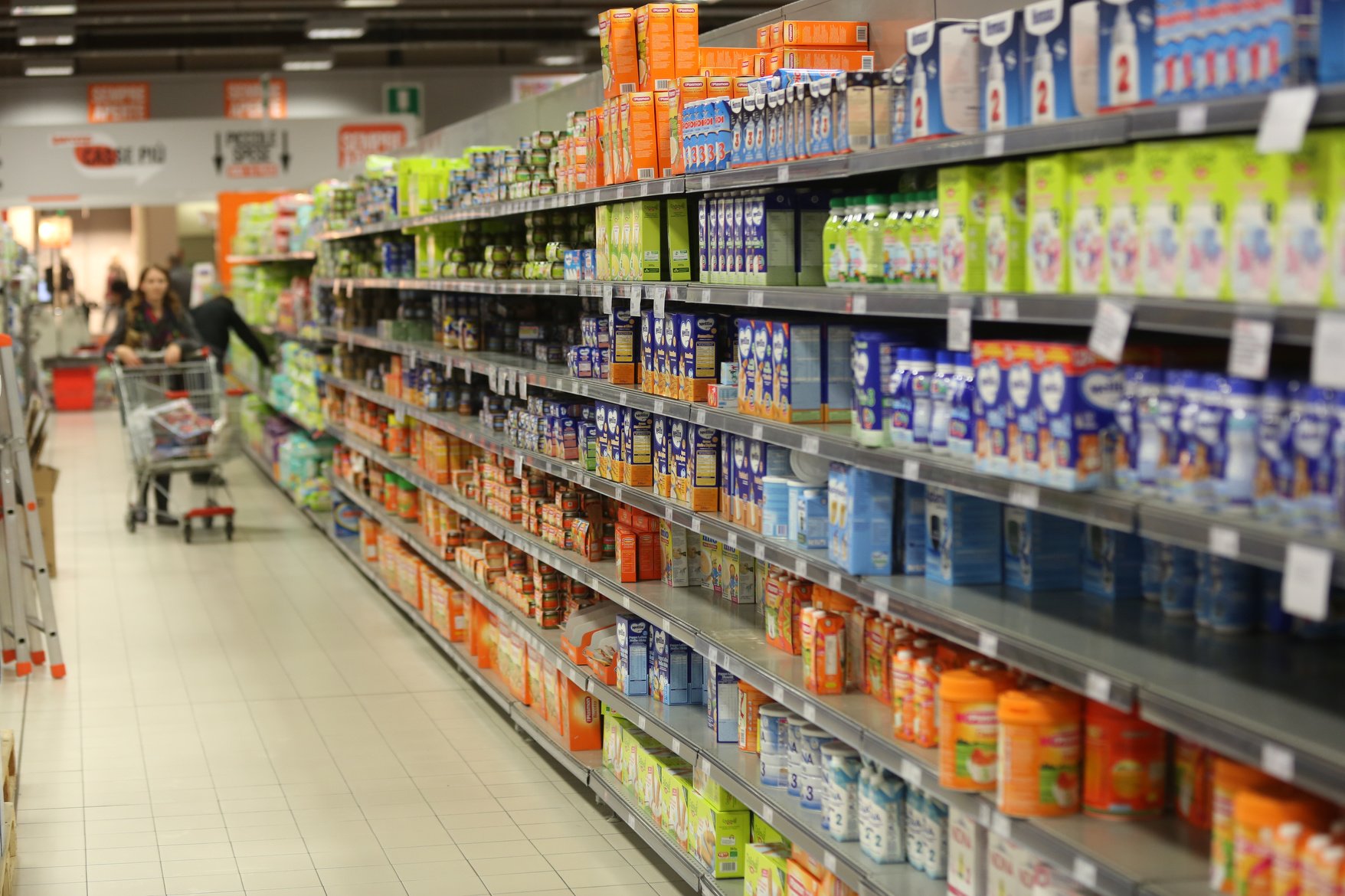Record-Breaking Month for Supermarkets, sales in excess of £12 Billion
Grocery industry experts from Kantar predict December will break records in the UK, with sales...
Thank you for visiting us!
This website does not completely support on Internet Explorer. Please use another browser.
Apologies for inconvenience
By: Il Messaggero on Apr 14, 2022 11:26:44 AM

Even though Italy won’t be as affected by the shortages, food may be less plentiful. There will be further price increases due to famines elsewhere and the issue of livestock diets will arise.
“I don't see a short-term problem in the supply of raw materials for our country”. Stefano Patuanelli, Minister of Agriculture, reassures. First, there was the two-year pandemic, then the surge in energy prices affecting the cost of transport and fertiliser production, followed by the war in Ukraine and the collapse of Eastern European grain and maize exports, and finally the climate, with prolonged droughts and sudden bad weather that damaged fruit trees during spring flowering, putting summer harvests at serious risk.
It is not easy to predict the future, even as far as next autumn. However, there will not be a lack of food in Italy. It will just be less abundant. The crisis will cause famine elsewhere and we will suffer further increases in the prices of essential products – mainly grains – and of products for which we depend on foreign countries.
According to Vispi, Italian agricultural imports have grown by 55% in 10 years: we buy 20% more fish, 51% more fresh and processed fruit, and 20% more vegetables and oils. This season is not looking promising. “Most people in the western world have little more than three days' supply in their kitchen cupboards, and when an emergency is feared this can increase their sense of uncertainty and fear about the future,” says Natasha Linhart, CEO of Atlante, a Bologna-based company that operates on four continents and manages the purchase of over 1,500 food products for major European distribution chains. “Furthermore,” she adds, “we now find ourselves with a level of inflation for food that is unprecedented in the last 40 years, and prospects that are not at all encouraging”.
“We should be looking at the long term,” says Dino Scanavino, president of Cia Agricoltori Italiani, “and to finally start an emergency stock survey at the EU level”. The main concern is the rising price of maize, which is usually imported from the conflict zones. “Maize is the first ingredient in the diet of our livestock,” says Scanavino, “and it is difficult to replace Ukrainian supplies with those from the United States, both because of the high cost of logistics and because of the issue of GMOs, which are incompatible with DOP production regulations whereby only non-GMO-fed meat can be used.
It is a short step from food security and wholesomeness to social issues. “The possible - European authorisation to temporarily waive maximum phytosanitary limits on imported agricultural products would have the additional effect of exacerbating the so-called food social gap, where the poorer part of the population also has to accept lower safety standards”, Luigi Scordamaglia, CEO of Filiera Italia, denounced during a hearing at the Chamber of Deputies.
In a world where everything is interconnected, we must look at other areas of the world that produce and export food. Linhart gives the significant example of Brazil, the world's fourth largest food producer and third largest exporter, leading producer of sugar and coffee, and the second largest producer of soya beans and beef. “Last year,” recalls the CEO of Atlante, “President Bol- sonaro had already warned of a potential food crisis because of the cost of fertilisers. Brazil imports 90% of what it uses and is now experiencing a very serious shortage that is putting its agriculture at serious risk”.
This leads to geopolitical issues that have repercussions on Russia (the world's largest producer of fertilisers), China (which will soon control 69% of the world's maize and 60% of global wheat), and in African countries should there be a shortage of bread – as is feared – and finally on the question of who will win the current war regardless of who will prevail on the ground.
However, the world’s precarious balance is also made up of detours and corrections, even with regard to food consumption. “If we lack soft wheat,” says Linhart, “we could see stocks of durum wheat erode; if we sacrifice tomatoes in order to plant corn – as is likely to happen in some areas of Italy – we will have fewer tomatoes. If we don’t have the fertilisers to grow beet, we will have no sugar and will have to replace those calories with other foods. If we lack sunflower oil, we will consume more palm oil. All this creates bottlenecks”. In short, there will be no shortage of food, but it will cost more because the scales are still tipped towards cost increases and imbalance between supply and demand.
This article first appeared on Il Messagero
Grocery industry experts from Kantar predict December will break records in the UK, with sales...
We are excited to announce that Atlante UK will be appearing at the International Food & Drink...
As summer approaches, many of us are looking for fresh and delicious ways to liven up our meals....